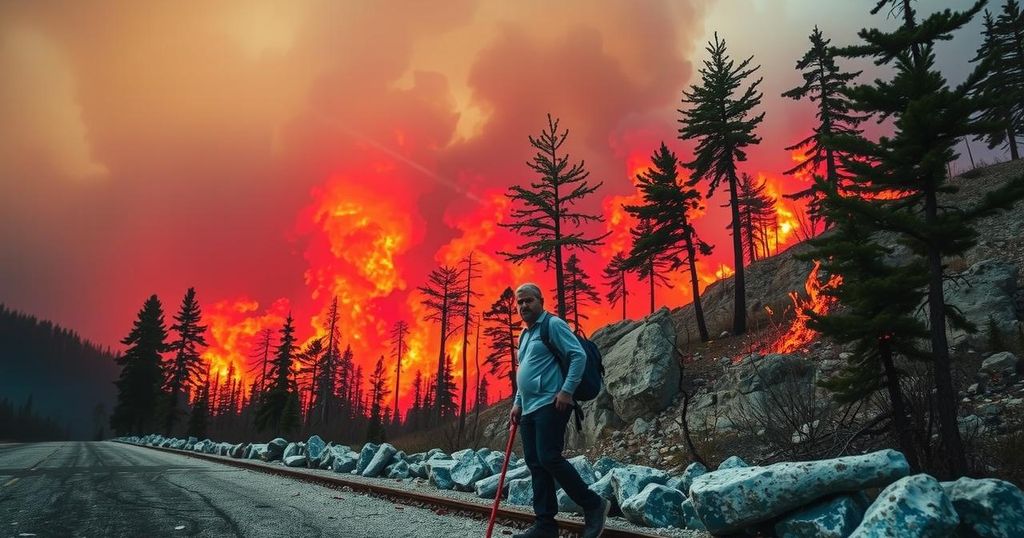Recent wildfires in Los Angeles have shifted public blame from climate change to government leaders, as residents demand accountability for funding cuts and emergency preparedness. Mayor Karen Bass and Governor Gavin Newsom face growing criticism for their actions during the crisis, highlighting a need for responsible governance in disaster management.
The conversation surrounding the recent wildfires in Los Angeles reveals an important shift in public sentiment, particularly concerning the accountability of government officials. Rather than attributing the catastrophic effects solely to climate change, residents are directing their frustrations towards their leaders, many of whom have failed to take effective action to mitigate such disasters.
Mayor Karen Bass, who was criticized for attending a conference in Ghana amidst the crisis and for significantly reducing funding for the fire department, faced scrutiny when asked about her absence and budgetary decisions. Furthermore, California Governor Gavin Newsom, despite his celebrity support, is being questioned by citizens regarding substantial cuts to the wildfire prevention budget. Residents are understandably outraged, especially when confronted with practical failures, such as fire hydrants running dry, which raises concerns about the state’s preparations for emergencies. This dissatisfaction suggests a growing public demand for accountability among elected officials and a reevaluation of how environmental policies and fiscal strategies are prioritized.
While climate change undeniably affects weather patterns, the expectation is that state leaders should proactively address these challenges rather than rely on external factors as an excuse for their inadequacies. Recent public backlash indicates that constituents expect their local governments to prioritize community safety and preventative measures over ideological agendas. As a result, the narrative around wildfires is evolving, emphasizing the role of leadership in disaster preparedness and response.
In recent years, wildfires in California have intensified, leading to destructive outcomes for numerous communities. These disasters have often been linked to climate change, yet there is an increasing acknowledgment that the failures of government management and resource allocation play a significant role in exacerbating these situations. The current discourse reflects the need for a more critical examination of political accountability and the effectiveness of wildfire prevention strategies amidst changing environmental conditions.
The recent wildfires in Los Angeles have catalyzed a significant shift in the dialogue surrounding disaster management, with a clear demand for accountability from government officials. As citizens grow increasingly frustrated with the outcome of budget cuts and the perceived negligence of their leaders, the discourse is poised to challenge the previously dominant narrative attributing such disasters solely to climate change. The expectation for effective leadership and resource management in the face of environmental challenges has never been more crucial.
Original Source: www.telegraph.co.uk







